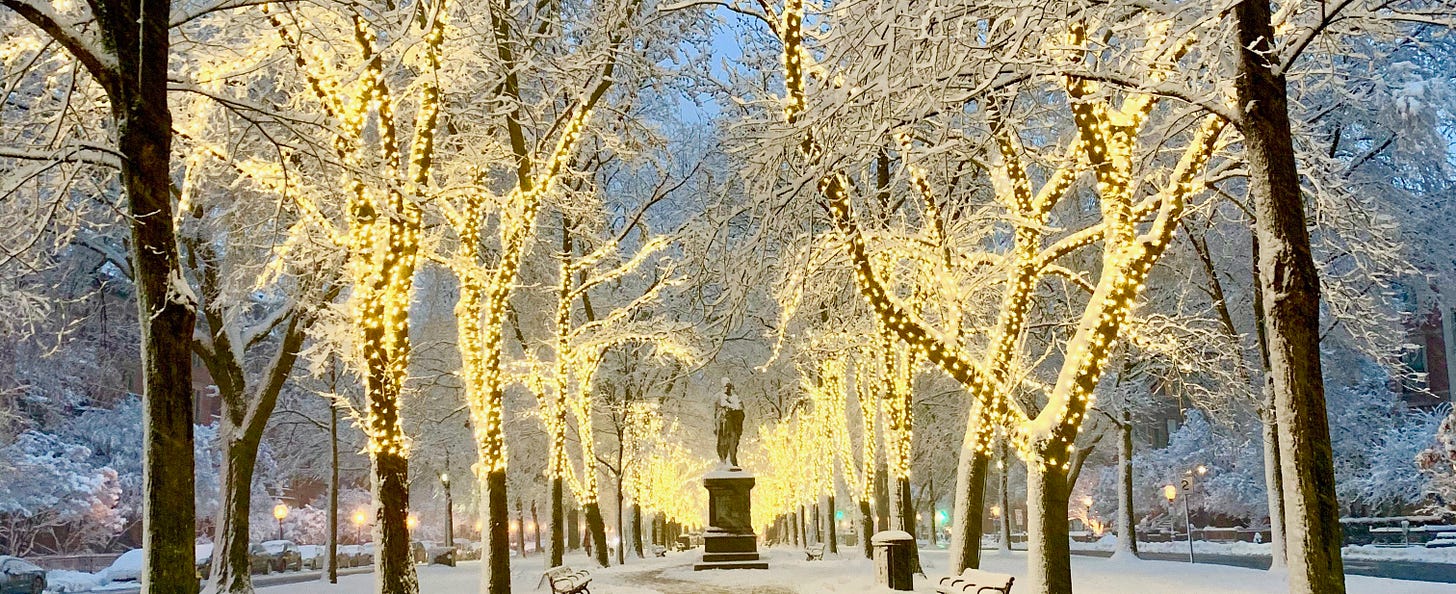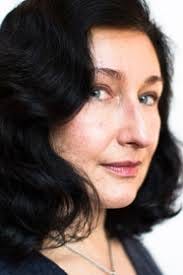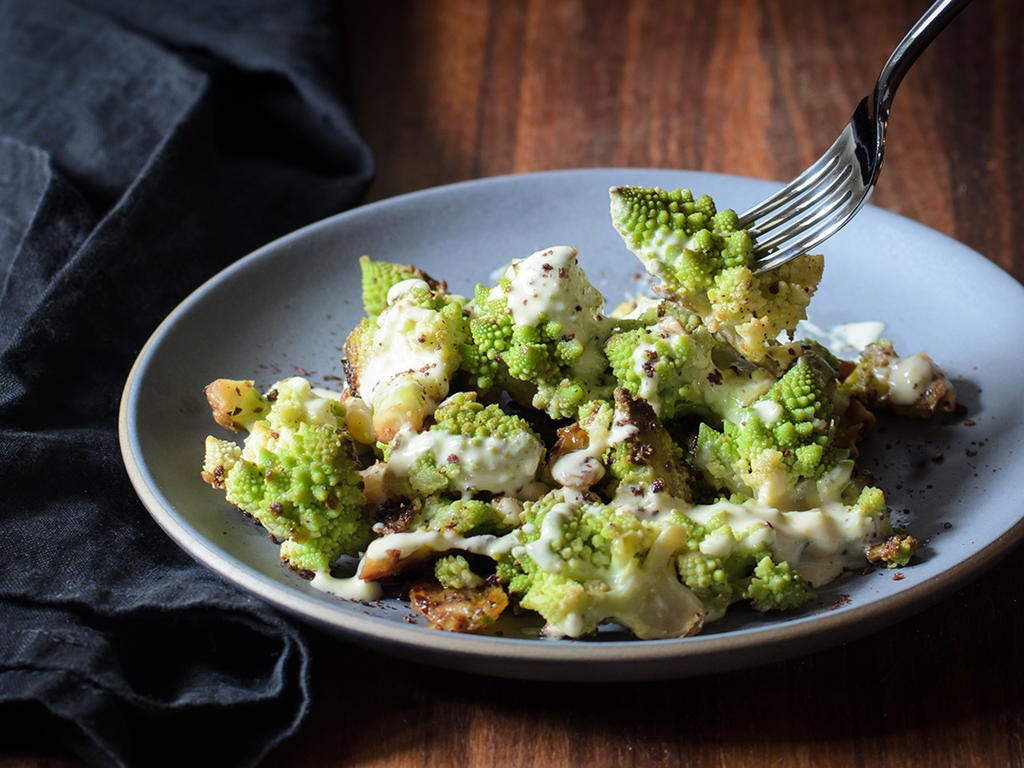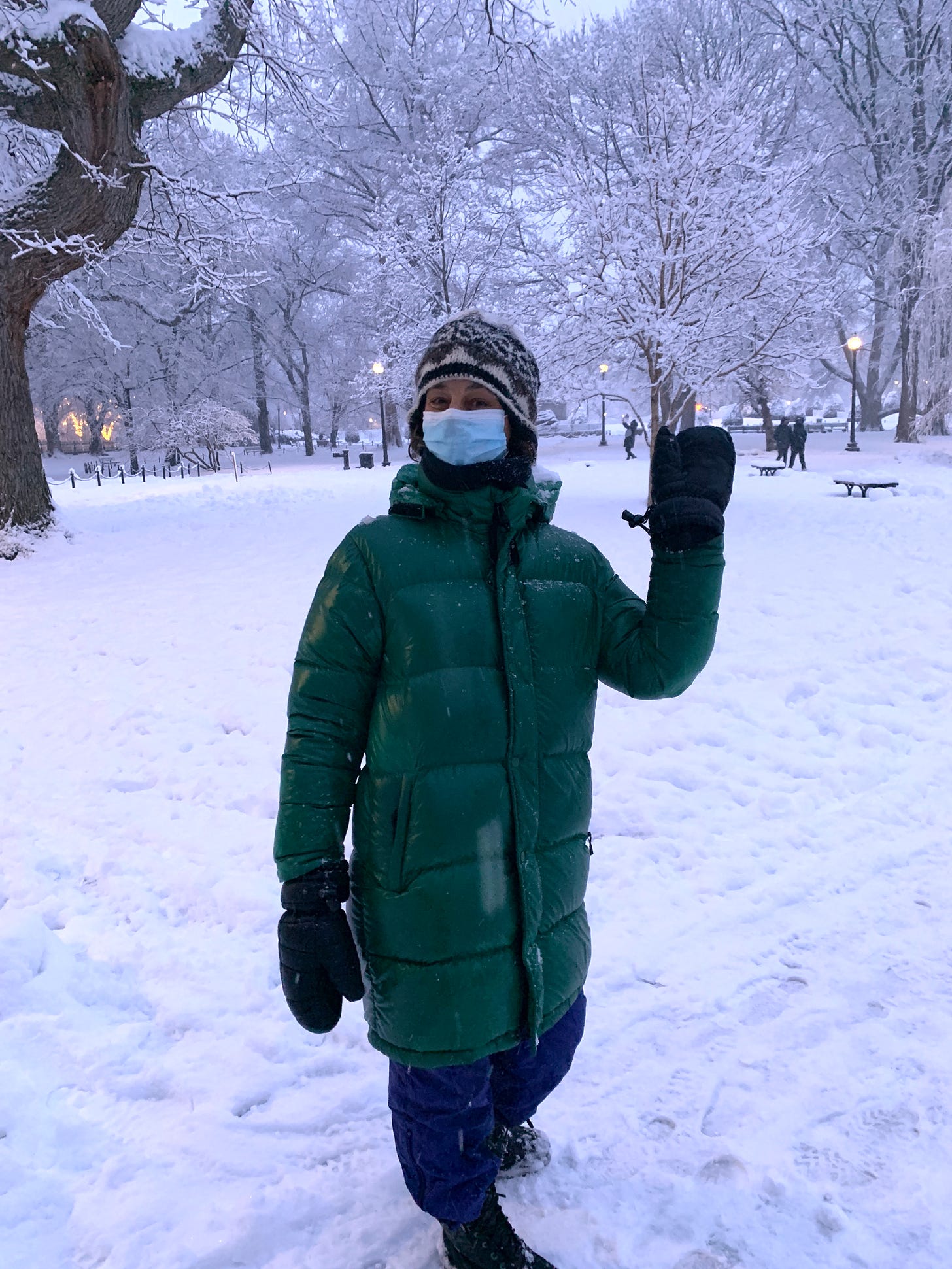WSG 5: Liz Ziemska
Women's Survival Guide
March. A year has gone by of this weirdness. When I think of “last year” I have to remind myself that 2019, the last normal year, is now the year before last. Last Thanksgiving? On Zoom. Holiday Season? Zoom again. Family birthdays? Some Zoom, some, just, didn’t happen. It was hard not to let everything slide. But, now there is hope. We have the first bit of positive momentum with vaccination.
I like to think of 2020 as a bad relationship that I was stuck in. 2020 was a real S.O.B. Now, it’s over and I need to pick myself up, wash my hair, put on clothing with buttons and zippers, clean the house, buy flowers for the table, call people (not text, but, actually call), and make plans.
Making PLANS. Something to look forward to that doesn’t involve food delivery. Even the act of planning. Planning to go (out) to work. To go (out) to school. To go (out) to dinner, to see a sporting event. To go (out) to meet your friends, your parents, your children, your neighbors. Out. Of. My. House. Out of your house. We all need to leave our houses. With that, we journey to Los Angeles and this week’s Maven, Liz Ziemska!
MAVEN OF THE WEEK! Liz Ziemska
Writing is like a finger print. It is unique to the writer. When you first read someone’s writing, it is a peek into who they really are, or, maybe whom they want to be, or are pretending to be. No matter, it is still a view into someone’s personal style that you can’t see when you pass them on the street or chat with them over coffee. Writing is personal. So, when I first read Liz Ziemska’s piece The Mushroom Queen years ago, I found out what a multifaceted gem of a now former sister-in-law I had. I hope you will read her stories, linked above and below, and share them.
What did you do between college and when you joined United Talent Agency?
I love this question because it allows me to demonstrate the old theorem that one’s life trajectory has a lot to do with resilience, luck, and stepping out of your comfort zone (is that courage or foolhardiness?). I graduated from UCLA with a BS in biology with only one certainty: I was never going to become a doctor. Needing to support myself, but having no idea what I wanted to do next, I fell back on my other love, besides biology: fashion.
I was among the first set of employees at the newly opened Ralph Lauren store on Rodeo. There I sold pleated khakis, cashmere twin sets, and crocodile pumps against a backdrop of wood paneling, mannequins dressed as lux frontiers people, and a John Williams’ score for “Out of Africa” on continuous loop. Then came the writers strike of 1988. No scripts, no films or television shows. While many undoubtedly suffered financially, the studio executives and agents all flowed through the Polo store, mostly just to hang out and socialize while sipping free champagne and cappuccinos. That’s where I met the head of the William Morris motion picture department.
He suggested I had what it took to become an agent and invited me to come see him at his office. There, he told me that I could either stay in LA and become a film agent, or move to NY and sell books. I chose the latter, as literature has always been my first love. I worked in the mailroom of the WMA NY office, eventually made it to a desk, but stayed at the company for only one year. Then I joined a smaller boutique firm located near NYU, and stayed there for 8 years, eventually building a client list that included novelists and scientists who wrote beautiful prose (Robert Sapolsky of Stanford University, Frans de Waal of Emory, among others). But after 11 years in NY, I started to miss LA. So I returned, ironically, to the film business I had shunned all those years ago.
If you hadn’t done the MFA program at Bennington College would you be writing now?
Perhaps, but not at the level that I’m writing now. Left to my own devices, I would have continued to imitate TC Boyle. It took the blistering criticism of the brilliant David Gates, my first teacher at Bennington, to finally make me write in my authentic voice. The story I wrote in his class, “A Murder of Crows,” went on to be published in Tin House magazine, and was later nominated for a Shirley Jackson Award.
Your writing has a magical quality, a touch of science fiction, a darkness. Where do you think these qualities come from in your writing?
The science is from my parents: my mother was a pediatrician, my father was an engineer. Science came easily to me at school, and for a long time I thought I would become a neurophysiologist, until I came to the animal model part of my training. Nope, couldn’t, wouldn’t do those things. The magic realism also comes from my mother, who was a huge reader, and introduced me to Gogol at a young age. Magic realism is where I feel most comfortable as a writer, though for a long time I thought I should write in a more commercial voice, like the tone of “Sex & The City.” Oy!
When did you decide to become a literary agent?
I had always loved writing but never thought I could do it myself. I worked briefly at a small publishing company and saw how long it took to produce a book, how risky it was as no one can predict what will sell, so I chose the agency business. As an agent, I could represent a wide variety of authors, spread my risk, diversify my portfolio. Also, I was not confined to genre, letting my choices be made by curiosity and passion.
You have a talent for collecting health and lifestyle experiences and advice, and you were a pre med student. It feels less like a profession, which it’s not, and more like a hobby, which it isn’t. What is it?
Part of it comes from my medical background as my mother took me to her conferences and always discussed her cases with me. Growing up in LA, you almost can’t help but be hyper aware of wellness. It’s the weather, your body being constantly on display, infrequently bundled. And also the entertainment industry: everybody must look good, otherwise it’s a sign of personal weakness. But frankly, I have always been interested in prevention. One of the first books I represented as a young agent had the prosaic title of, “Eat to Beat Cancer.” Deep greens and deep reds: that’s where the mutation fighting phenols reside. My latest obsession is mushrooms. All things Paul Stamets.
Why didn’t you pursue medicine, do you wish you did?
Not for me. I love the narrative of science but not the actual workings of it. I realized during undergrad that I was not great in the lab, not detail oriented enough. I had a mortal fear of missing a diagnosis, hurting my patients instead of helping them. I guess I am missing the god complex necessary to be an excellent physician. But actually, now that I have an ancient dog, I sort of wish I had become a veterinarian. Would certainly help with the vet bills.
What are you working on now?
Recently, I turned one of my short stories into a screenplay and have received some really positive feedback. So now I’m trying my hand at a series by turning Anna Karenina into a ghost story. Tolstoy is rolling in his grave.
What books are on your bedside table?
A Swim in a Pond in the Rain, George Saunders’ book on writing in which he examines five Russian short stories. The Occult in Russian and Soviet Culture, edited by Bernice Glatzer Rosenthal.
What do you do to relax?
I love taking long walks. Between the beaches and the many hiking trails through the Santa Monica Mountains, there are many opportunities to get out of my head and commune with nature.
What category would you add to the Guide?
This is a tough one, as you have so many good questions. Recently I’ve been thinking about transformations in midlife. We are never too old to change. Maybe something about the next stage of your evolution. I like the idea of horizontal mentorship, in other words, not just us older women mentoring the next generation, but mentoring each other, using our diverse backgrounds to work on undeveloped areas of our lives.
For instance, I was just on the phone with my sister, who urged me to get on Clubhouse and learn new things, and then said something very interesting from her business school training: “You always have to assume positive intent, have empathy for what they have on their plate.” This is not necessarily the way it was in the film business. By the way, my guilty Netflix pleasure is, Call My Agent, a French language series set in a Paris-based talent agency. Such a cutthroat business.
NB: For you WWll or math junkies out there, Liz’s Mandelbrot the Magnificent: A Novella is a must read.
A Recipe Recommended by Liz Ziemska:
Gjelina's Pan-Roasted Romanesco with Golden Raisins, Tahini, and Sumac
Please use the link above for the ingredients and directions.
A Question for Four Women: Once again, What did you think you would be when you grew up?
WOW, look at the answers below. Last time we had a few potential archeologists and this time, three out of four mention lawyering. None of the women below became lawyers, though a few tested the waters, and one became a doctor.
It was assumed by all parties (parents, friends, classmates, teachers) that I would one day become a doctor. Making the decision to leave that world behind was like having a limb amputated. I have no regrets. (as told by this week’s Maven, Liz).
A lawyer - my divorced aunt was one in Manhattan and she was very fabulous
In the 4th grade I went to school career day as a telephone company lineman! What was I thinking…I had read a story in the local paper about the first woman ever to do this job…climb telephone poles and fix the lines. During college I did a summer as a telephone company draftsperson for the installation of fiber optic cables…that was enough to send me headlong into the study of law…then I worked as a paralegal after graduating and rethought that career…I think I am still looking.
A doctor, dentist or a lawyer. Not sure if I “wanted” to be those things, I just knew I would be one of those things. As the oldest child of an immigrant mother and a father who lived in the projects, education was ingrained in me. All of those professions require a masters or doctoral degree. I knew I would and wanted to reach that level of higher education. I wanted to study the human brain, but wasn’t sure in what way. Through courses and work experience, I learned that I had an interest and some skills in the area of psychology and as the story goes I became a psychologist.
So, that’s it for this edition. I have left the comment section “on” in case you have questions, suggestions or reflections. Here is the link to the previous 4 newsletters . I will figure out how to add this one to that web site and those posts to this platform. I feel like the Scare Crow reciting math problems from the Wizard of Oz. Finally got a brain:) Remember to breathe. k
PS. A special ‘thank you’ to Micki Rowaan and Djamila Fitzgerald who have edited every WSG Newsletter for me, and hopefully many more!







I admire the evolution that’s taking place with the newsletter - it’s becoming more focused, ‘tightened up’. And I respect the commitment and ‘can-do’ attitude it takes to ask for feedback, work to sort through it, apply what works, step back and re-appraise; great job, Kim!
Specifics re: #5 -
— It’s so enriching of content to have links to referenced or related info. Thanks for that!
— It was good to read Liz’s thoughts on lateral mentorship/ support! There’s often an assumption of ‘closed doors’ to new opportunities, new learning, new skill-building beyond a certain age. Some opportunities DO appropriately become the domain of younger people, but not nearly as many as our society would have us believe.
— Thanks and kudos, Kim, for the ongoing thoughtful and productive steering of this ship you’ve built!
Thanks for sharing. Love the Oz reference! And also hearing about others on Clubhouse.